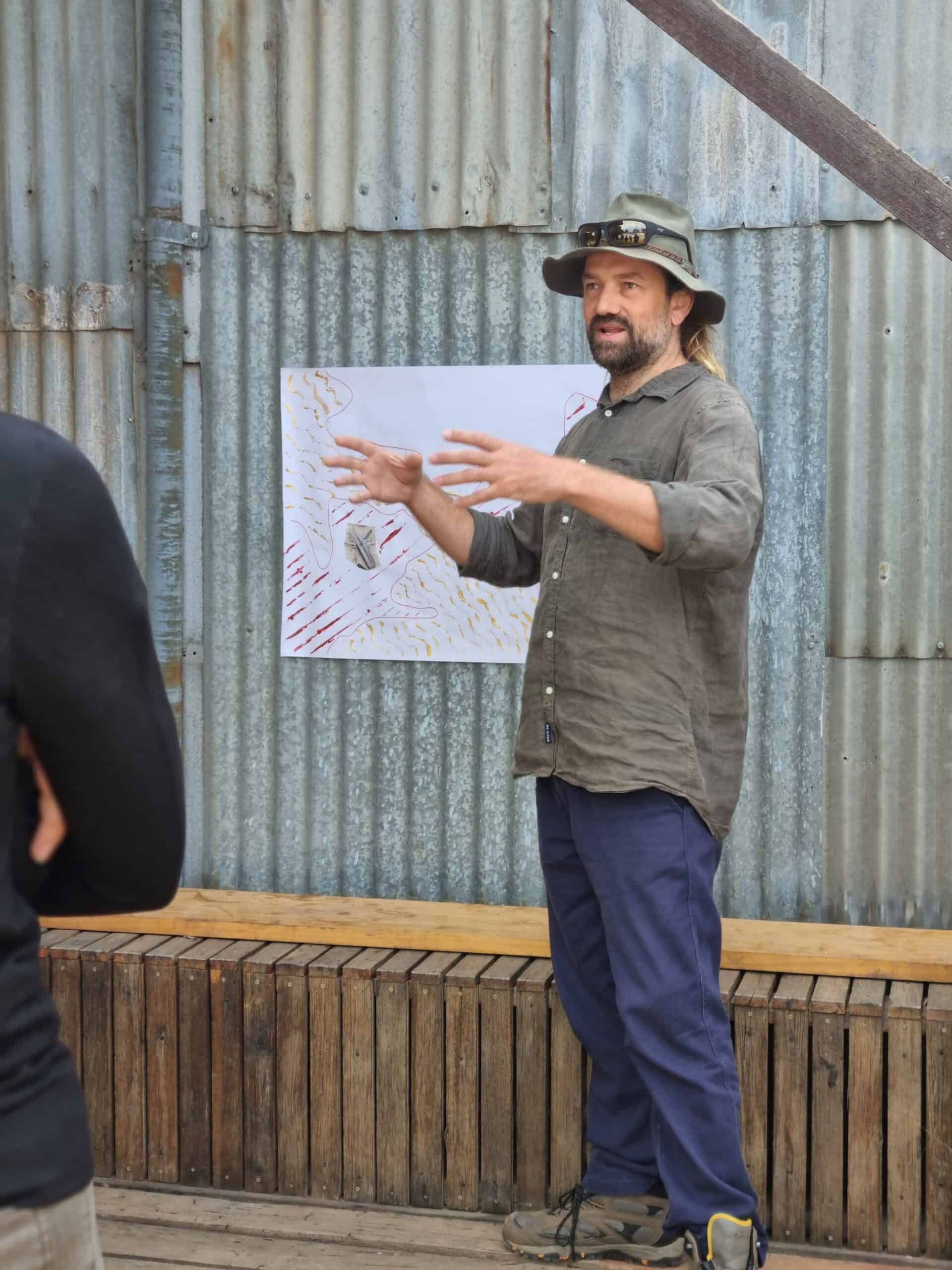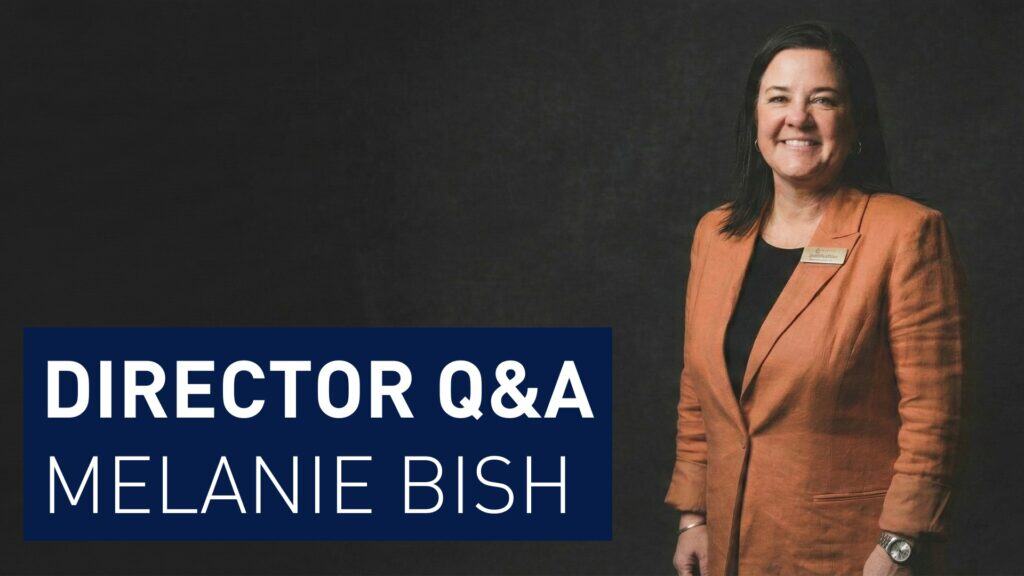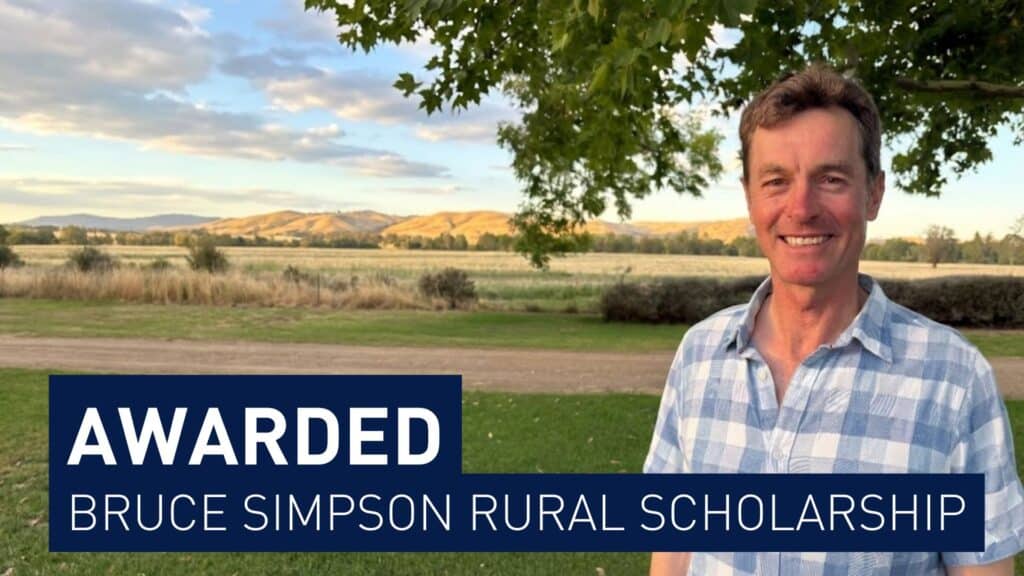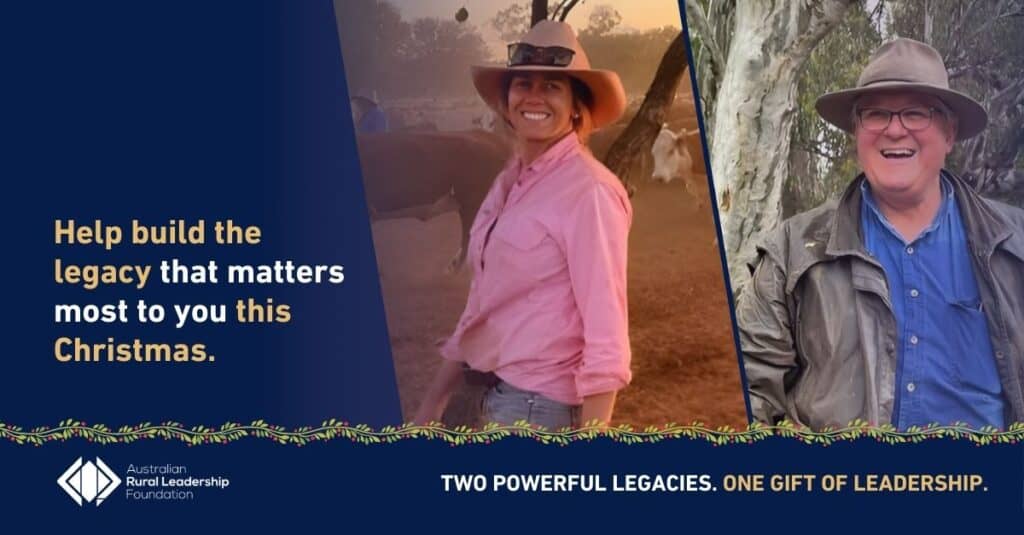Gamilaraay man Jacob Birch isn’t just working on launching a new agribusiness, he’s envisioning a different world. It’s this vision that enabled him to join Australian Rural Leadership Foundation’s TRAIL Emerging Leaders Program, a cross-sector, challenge-based 7-day leadership program designed to support and develop emerging leaders in rural, regional and remote Australia.
“For us, it’s about a long-term vision of having Indigenous communities owning and managing land. It’s about being actively involved in a holistic agriculture system that produces good environmental, social and cultural outcomes,” says the Sunshine Coast-based entrepreneur, academic and 2024 TRAIL Emerging Leaders Program participant.
His research into native grains while studying at Southern Cross University led him to create Yaamarra & Yarral, a profit-for-purpose social enterprise focused on putting native, ancient and heritage grains back on the menu in Australia.
His aim to replace processed white flour with a highly nutritious stoneground flour made from a native grain called ganalay addresses several challenges his community faces. High in protein, calcium and many other essential micronutrients, having access to bread baked with ganalay could improve the health outcomes of his community. But it doesn’t end there. Native grasses also provide environmental benefits such as carbon sequestration and soil remediation. Then there’s theeconomic, social and cultural impacts associated with running an enterprise focused on a plant that holds much cultural significance for the Gamilaraay people.
As Australian farmers work on adapting to the challenges presented by climate change, Jacob is turning to ancient knowledge to recreate robust food systems that support and promote ecological biodiversity while helping to meet the nutritional needs of the community.
“Our whole agriculture system relies on having a stable environment and weather patterns. If we keep destabilising it, agriculture won’t exist anymore,” he says.
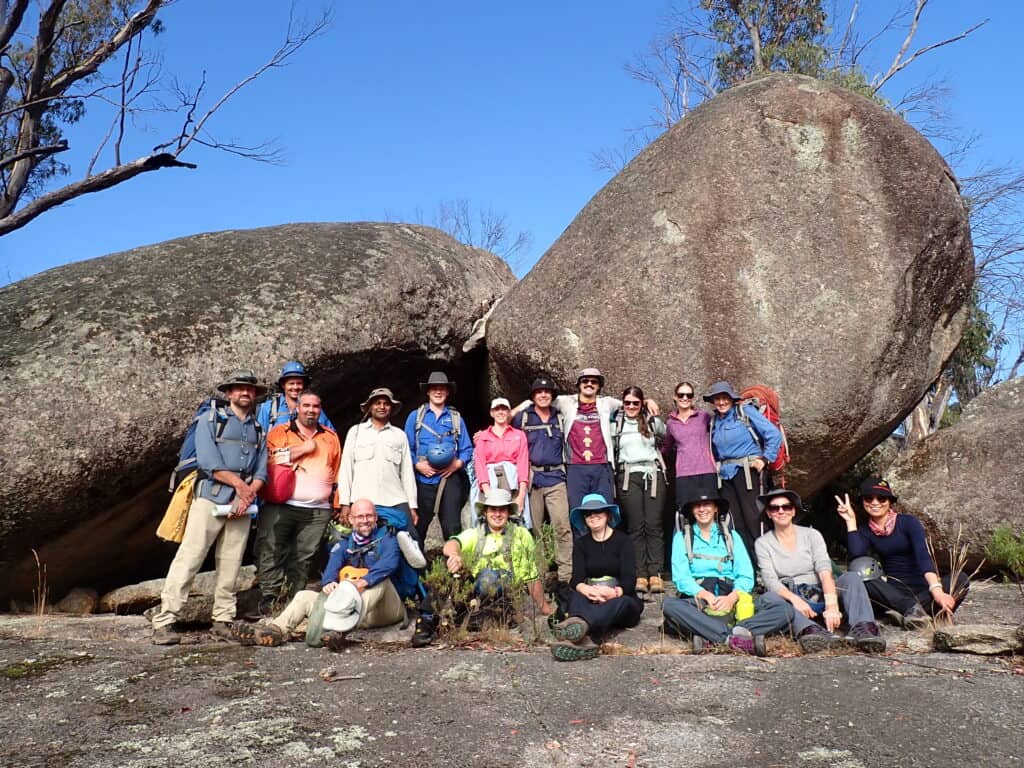
Getting out of the echo chamber
Whether it’s making breakfast or building a raft, the experiential nature of the TRAIL program’s activities encourages everyone to work together to secure a good outcome. During these hands-on, challenge-based activities Jacob observed varying communication styles and approaches to problem-solving.
“The program has given me a good foundation to be able to work with different people as I was able to observe a variety of leadership styles and see how people operate in different situations,” he says.
The AgriFutures scholarship recipient sees one of the key benefits of participating in the TRAIL program was connecting with people vastly different to himself, including farmers working in intensive industries like cotton and cattle production.
“It was good to get exposure to a diverse cohort of people from across Australia working in different agricultural sectors,” says Jacob, who reflects that the program highlighted no matter your cultural background or what industry you work in, we all share similar motivations, aspirations, hopes, dreams and fears.
“With my work, you can get in a bit of an echo chamber. You’re talking to the same people who all get it, especially online. You’re not really out there interacting with different people, so all you’re hearing is positive reinforcement from people in the same headspace,” Jacob shares.
Networking opportunities also presented themselves as the participants got to know each other during the week-long program. Meeting a Queensland farmer who grows millet for soil remediation purposes proved to be serendipitous. Jacob is now hoping to collaborate with the millet farmer to develop a new market for the nutritious, climate-resilient grain that is a staple in Asia and Africa yet is commonly sold as birdseed in Australia.
“It seems like a really promising connection. It’s just amazing to meet somebody who has this product and possibly hasn’t considered its potential. I’d say that connecting, sharing and opening up new opportunities for each other has been really beneficial,” says Jacob.
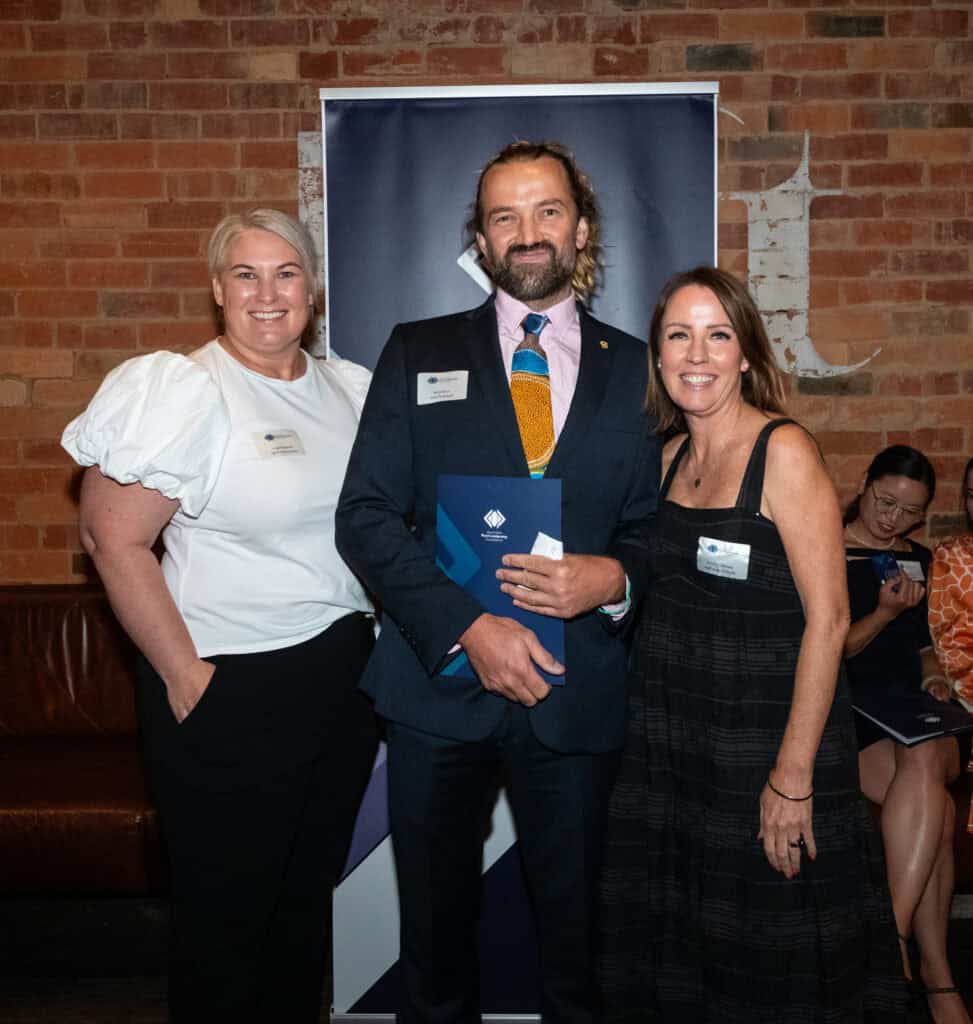
Planting seeds for the future
2024 is shaping up to be a big year for Jacob, who is about to begin a PhD at the University of Queensland. His strong commitment to rebuilding traditional food systems and promoting food sovereignty for the Gamilaraay people has also been recognised with a fellowship from the Churchill Trust. As a part of the fellowship, he’ll soon spend two months in North America connecting with First Nations communities to learn more about the harvesting of a culturally important wild rice called manoomin.
“They’re about 50 years ahead of us, so there’s lots of lessons to be learned from them,” he says.
Many entrepreneurs dream of taking their venture nationally or globally, but Jacob doesn’t have an aggressive scale-up strategy or aspirations of hitting hypergrowth. Instead, he’s interested in operating an enterprise where success is measured by a ‘quadruple bottom line’ of economic, environmental, social and cultural impacts.
Being guided by four main principles he calls the ‘Four Rs’ (reciprocity, relationality, respect and responsibility) means a top-down leadership approach is out and collective decision-making informed by community consultation is in.
“I’m thinking about how I can do this for my Mob and shift that paradigm there. And if it works there, then it’s a model for others to follow. But it’s not for us to tell anybody else what to do as sovereign peoples. It’s up to each language group or clan to determine what they want to see happen on their homelands and within their communities,” Jacob explains.
This approach may be a bit of a headscratcher for anyone with a traditional business mindset, but Jacob believes a holistic model incorporating agriculture, conservation, health, culture and community will secure a better future for not only his people, but all of us.
“This is about decentralising the food and agriculture systems, so people in communities are taking control, participating, leading and ultimately, benefitting from it.”
Expressions of interest for the 2025 TRAIL Emerging Leaders Program can be made on the Australian Rural Leadership Foundation’s website today.


